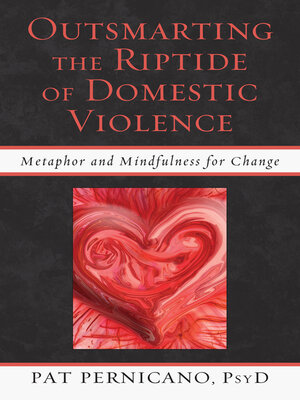Outsmarting the Riptide of Domestic Violence
ebook ∣ Metaphor and Mindfulness for Change
By Patricia Pernicano

Sign up to save your library
With an OverDrive account, you can save your favorite libraries for at-a-glance information about availability. Find out more about OverDrive accounts.
Find this title in Libby, the library reading app by OverDrive.



Search for a digital library with this title
Title found at these libraries:
| Library Name | Distance |
|---|---|
| Loading... |
In Outsmarting the Riptide of Domestic Violence: Metaphor and Mindfulness for Change, Pat Pernicano translates issues central to domestic violence recovery into metaphorical stories and mindfulness narratives that will facilitate the change process. The stories are intended to be used in conjunction with trauma-focused interventions in order to reduce troubling symptoms, address risk and relapse-potential, change relational patterns, and remediate attachment deficits. Pernicano provides practitioners with a needed bridge between theory and practice, a one-of-a-kind resource for therapists, counselors, and social workers who aid victims of domestic violence.
Pernicano's book is organized according to the Transtheoretical Stages of Change Model and includes stories within each section to facilitate the change process in the individual while using TF-CBT PRACTICE elements: Psycho-education about domestic violence and trauma, Relaxation (and stress reduction), Affective expression and regulation, Cognitive restructuring, Trauma narrative development and processing, In vivo exposure to avoided situations, Conjoint sessions with children, and Enhancing future safety and healthy relationship development.
Pernicano's book is organized according to the Transtheoretical Stages of Change Model and includes stories within each section to facilitate the change process in the individual while using TF-CBT PRACTICE elements: Psycho-education about domestic violence and trauma, Relaxation (and stress reduction), Affective expression and regulation, Cognitive restructuring, Trauma narrative development and processing, In vivo exposure to avoided situations, Conjoint sessions with children, and Enhancing future safety and healthy relationship development.







